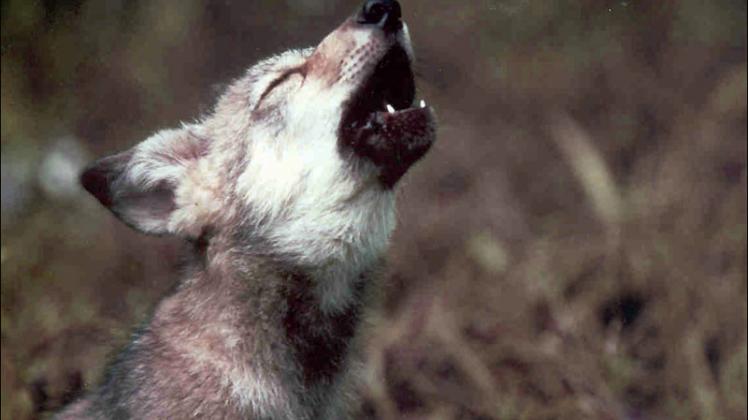
Wolves are still hated—and more are poached
It’s counterintuitive, but experts have long argued that one of the best ways to conserve carnivores, such as gray wolves, is to kill them in government-sanctioned culls. Keeping the predators in check is supposed to help persuade carnivore-haters to become more tolerant and deter poaching. But a new study of gray wolf culling in two U.S. states suggests that the opposite is true: The kills breed more intolerance and foster more illegal killings.
The findings, reported in the Proceedings of the Royal Society B, are likely to apply to other large carnivores as well, the authors say. And they are certain to heap fuel on an already hot debate over how best to manage large predators suffering from habitat loss and human persecution—from wolves to grizzly bears to African lions.
The European federation of hunting associations, the International Union for Conservation of Nature, and numerous government wildlife agencies in the United States have endorsed culling large carnivores at times, particularly in areas where the predators coexist with people and livestock. In the case of wolves, part of the reasoning goes like this, says Adrian Wydeven, a wolf biologist at Northland College in Ashland, Wisconsin, who was not involved in the current study: “When the state doesn’t use lethal means to control wolves depredating on livestock, people take matters into their own hands.”
To test the notion that legal culling conserves predators, Guillaume Chapron, a quantitative ecologist at the Swedish University of Agricultural Sciences in Uppsala, and Adrian Treves, a predator-prey ecologist at the University of Wisconsin, Madison, analyzed wolf management policies in Wisconsin and Michigan. Because of government decisions that repeatedly took wolves off and placed them on the federal endangered species list from 1995 to 2012, gray wolves in the two states experienced six periods of legal culls and six periods of full protection in just 18 years. That gave the ecologists 12 “basically replicated data sets” to work with, Chapron says.
The scientists focused on the population growth rate to see whether it changed in the years of legal culling. It did, dropping 4% in each state, even as the wolf populations continued to grow overall. That change might seem small—but the scientists also found that there was an 83% probability that the wolf population growth rate would fall whenever culling was allowed. The scientists got the same results—the high probability of a 4% drop in growth—when they substituted the culling policies with federal announcements delisting the wolves.
The scientists believe the lower growth rates they observed could only be the result of a surge in illegal killings. Chapron explains that although they don’t have the data to prove it—thanks to the secretive nature of poaching—it’s the best remaining explanation after others have been ruled out. It’s unlikely, for example, that wolves fled to neighboring states, because culled wolves were trapped, not chased.
Chapron says that the bottom line is that “this notion—that the legal culling or hunting of large carnivores decreases poaching—has become an unquestioned truth. … But there’s no evidence to support it.”
The scientists say they also saw no signs in their analysis that the wolves’ slow growth was because their population reached the limit of what the habitat could support. Instead, the scientists think poachers regarded the culling or delisting announcements as a signal that prohibitions against illegal hunting would not be enforced.
That is an important finding, says Stephen Redpath, an ecologist at Aberdeen University in the United Kingdom. “It suggests that if we want to reduce poaching we should have stricter policies and stronger enforcement,” he says.
Chapron and Treves concur, arguing that “lenient environmental policies,” like having government agents kill protected wolves that hunt livestock, is a bad idea, especially if that action is intended to prevent citizens from poaching.
But what are the alternatives for wildlife managers and livestock owners? Instead of culling, they should turn to “nonlethal deterrents” like guard dogs, range-riding, and electrified, flagged fences, says Wayne Pacelle, president and CEO of The Humane Society of the United States in Washington, D.C.
But Douglas Smith, a wildlife biologist and leader of the wolf project in Yellowstone National Park, says you can’t just tell rural people they can’t kill the wolves. “Making killing illegal and assuming that will work better is not correct,” he says, adding that such pronouncements only alienate these people. “Somehow we have to come to grips with wolf hatred in another way.”
Now, only Montana and Idaho have legal, big game wolf hunts. Those two states, as well as Oregon and Washington, also use culls at times to reduce conflicts with people and livestock; wolves in Michigan and Wisconsin are neither hunted nor legally culled. This type of management isn’t erroneous, insists David Mech, a wolf expert and adjunct professor at the University of Minnesota, Twin Cities. “These are well-accepted tools for other animals, including black bears, cougars, and bobcats. So why not wolves?”
Mech, Wydeven, and others think the study is flawed, because it did not measure poaching directly. Nor do they think the analysis demonstrates that government culling of wolves leads to increased poaching. Another study in Wisconsin 2 years ago fingered what its authors (one of whom was Wydeven) think is a more likely reason people dislike wolves: the canids’ increasing numbers. As the animals’ population grew in Wisconsin, so did negative feelings about wolves, this study showed.
Either way, many people in the heartland are apparently still uncomfortable living alongside wolves, whose numbers continue to grow, at least in Michigan. “This is inevitably going to lead to increasing problems for livestock farmers and therefore to increased conflict,” Redpath says. And likely more debate over whether legally culling the wolves would help.
Source: Legal culls don’t buy goodwill for wolves | Science | AAAS

Comments
It’s high time that poachers in Europe and America got the same treatment that they would get in Africa and India for their crimes: Paying the ultimate price.